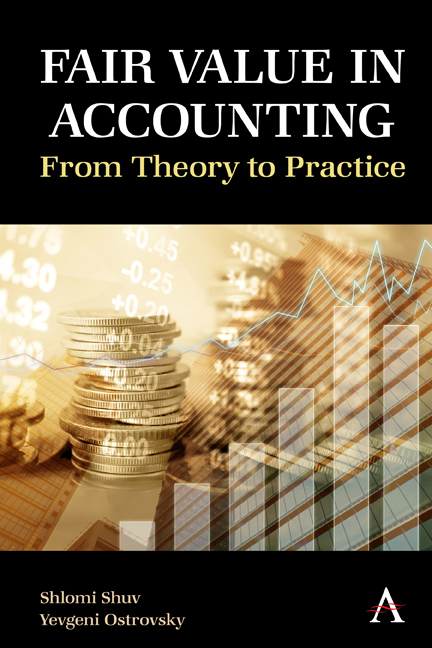Book contents
- Frontmatter
- Contents
- Preface
- Chapter 1 Background
- Chapter 2 Definition and Scope of Fair Value
- Chapter 3 Identifying the Asset or Liability to Be Measured
- Chapter 4 Determining the Market in Which the Transaction Will Take Place
- Chapter 5 Identifying Market Participants
- Chapter 6 Defining the Transaction Price
- Chapter 7 Definition of an Orderly Transaction
- Chapter 8 Fair Value at Initial Recognition
- Chapter 9 Application to Nonfinancial Assets
- Chapter 10 Measuring Fair Value of Liabilities and Equity Instruments
- Chapter 11 Application to Financial Instruments with Netting Positions
- Chapter 12 Valuation Techniques
- Chapter 13 Disclosure Provisions
Chapter 2 - Definition and Scope of Fair Value
Published online by Cambridge University Press: 15 September 2022
- Frontmatter
- Contents
- Preface
- Chapter 1 Background
- Chapter 2 Definition and Scope of Fair Value
- Chapter 3 Identifying the Asset or Liability to Be Measured
- Chapter 4 Determining the Market in Which the Transaction Will Take Place
- Chapter 5 Identifying Market Participants
- Chapter 6 Defining the Transaction Price
- Chapter 7 Definition of an Orderly Transaction
- Chapter 8 Fair Value at Initial Recognition
- Chapter 9 Application to Nonfinancial Assets
- Chapter 10 Measuring Fair Value of Liabilities and Equity Instruments
- Chapter 11 Application to Financial Instruments with Netting Positions
- Chapter 12 Valuation Techniques
- Chapter 13 Disclosure Provisions
Summary
Definition of Fair Value and the Fair Value Measurement Approach
International Financial Reporting Standard (IFRS) 13 and Accounting Standards Codification (ASC) 820 define fair value as the price that would be received to sell an asset or paid to transfer a liability in an orderly transaction between market participants at the measurement date. Despite the fact that this definition is relatively short, each of its components (exit price, orderly transaction, market participants and the measurement date) is of great significance. First, it is explicitly noted in the definition that the theoretical transaction is carried out on the measurement date, thereby emphasizing that the market conditions to be taken into consideration for the purpose of determining the valuation should be those at the valuation date rather than past market conditions or market conditions that may exist in the future. Furthermore, the definition means that to determine fair value, the reporting entity is required to refer to several issues:
a. Identify the item to be measured (in view of the unit of account) (for more information, see Chapter 3 ).
b. Identify the principal market (and in some cases, the most advantageous market) for the asset or the liability (for more information, see Chapter 4 ).
c. For nonfinancial assets, identify the highest and best use of the asset, subject to existing restrictions (for more information, see Chapter 9).
d. Identify and select the appropriate valuation techniques while maximizing the use of available market input and taking into consideration the assumptions of market participants (for more information, see Chapter 12).
Items within the Scope of the Standards
Overview
Generally speaking, the scopes of IFRS 13 and ASC 820 are considerable, which make them relevant to most cases where fair value measurements are made.
Formally, the Standards apply when another IFRS or US Generally Accepted Accounting Principles (US GAAP) topic requires or allows fair value measurements to be carried out. The Standards also apply in cases where measurements are based on fair value, that is, whether the fair value is the final outcome or an intermediate stage. Under IFRS, a case where fair value serves as the final outcome is the measurement required by International Accounting Standards (IAS) 40, in which the reporting entity opts to measure investment property at fair value on subsequent dates (for more examples, see Chapter 1, Section 2).
- Type
- Chapter
- Information
- Fair Value in AccountingFrom Theory to Practice, pp. 11 - 18Publisher: Anthem PressPrint publication year: 2022



